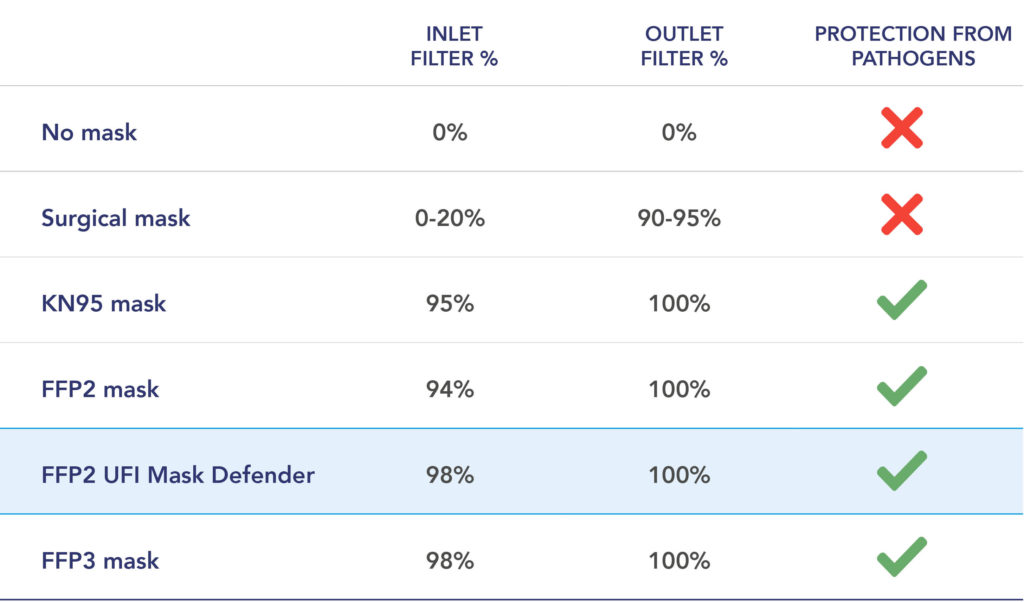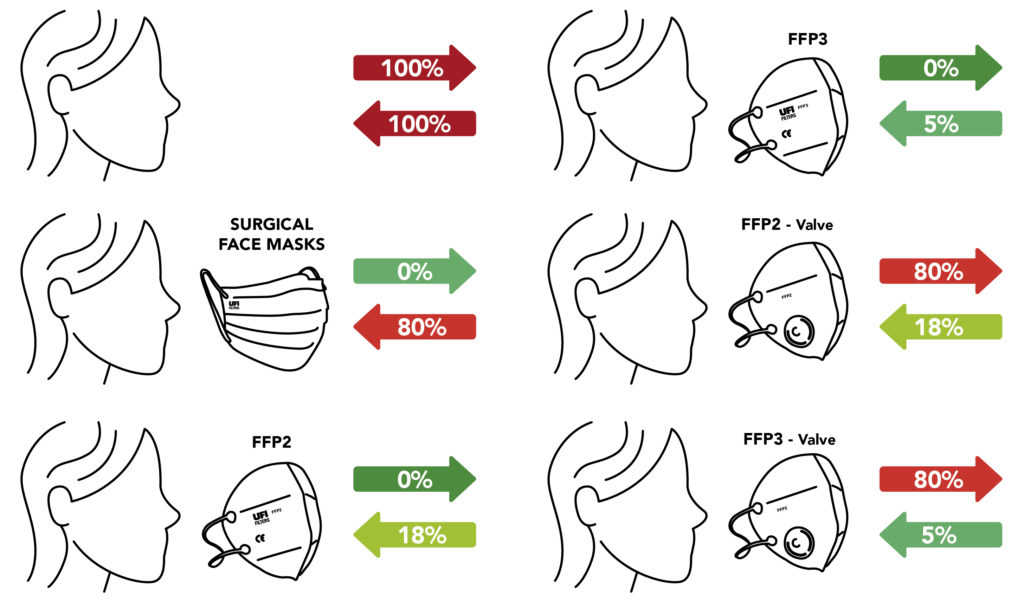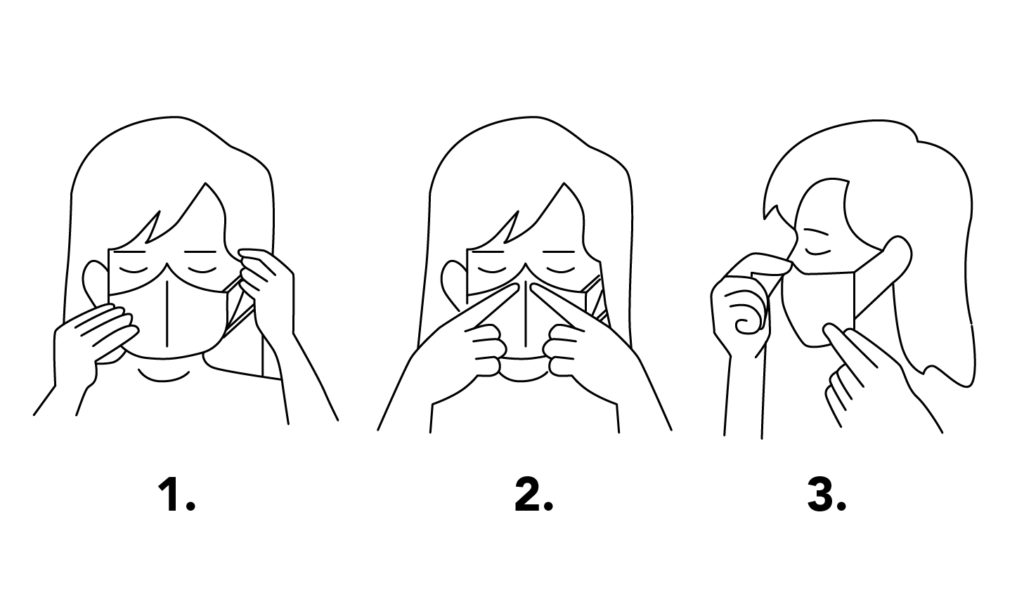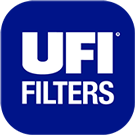FAQ
When should you use a face mask?
For Italy, please refer to the Ministry’s website for information on the anti-contagion regulations. http://www.salute.gov.it/portale/p5_1_2.jsp?lingua=italiano&id=235
What types of UFI face masks exist?
What are the differences between UFI Filters surgical masks and FFP2/KN95 masks?
KN95 masks, on the other hand, have 5 filtering layers with a filtration efficiency of ≥ 95% @ 0.3 μm NaCI at 85 L/min.
What distinguishes the FFP2 UFI MASK DEFENDER masks from the KN95 ones are their 4 filtering layers and higher filtration capacity, i.e. ≥ 98% @ 0.6μm at 95 L/min.
SUMMARY OF COMPARISON OF MASKS

What is the difference between KN95 and FFP2 masks?
Which type of face mask should you use to protect against Coronavirus?
 The classification of masks is based on the level of protection offered by the device being worn:
The classification of masks is based on the level of protection offered by the device being worn:
- Surgical face masks: these devices are suitable for daily use in safe places or places where there is less risk of potential contact with the virus. Surgical masks protect others, but not the wearer.
- FFP2/KN95 masks: these are suitable for individuals at risk and healthcare workers and are to be preferred in places where there is a higher risk of contamination. They protect both the wearer and the people around them.
It is important to choose the right device for the situation it will be worn in.
How should UFI masks be worn?
We recommend washing your hands thoroughly before performing these steps.
- Remove the mask from the individual packaging.
- Make sure that the nose clip is facing upwards.
- Put on the mask, holding it by the elastic loops which must be placed behind the ears.
- Adjust the mask on your face and adjust the nose clip so that it fits snugly.
- Avoid handling the mask by touching it directly on the inside or outside. Always remove the mask using the elastic ear loops.

What are the masks made of? What is UFI Meltblown and where is it produced?
This special fabric with high filtration efficiency has been recognised as one of the best on the market and is ideal for making masks: material analyses were carried out by the Milan Polytechnic and the EUROFIN-recognised laboratory Fonderia Mestieri in Turin.
Design and development were carried out at the Innovation Center laboratory in Ala di Trento whereas production took place at our UFI Shanghai plant where a part of production was extended to include filter material for masks.
The outer layers of the FFP2 and KN95 masks are made of polypropylene airlaid which makes them flexible and protective layers of spunbond, a non-woven fabric that is soft and does not irritate the skin. To see detailed information on the composition of the masks, see the page for each product.
For more information on Meltblown, please visit the special section:
Which characteristics make the UFI face mask range a high quality range?
UFI Filters masks also undergo stringent internal compliance checks with 3 procedures performed on each product batch:
- Incoming Inspection. Quality control is performed on incoming material at our factory in Shanghai.
- In-process Control. The product being processed is carefully controlled by monitoring the entire production process to ensure that the specifications (inspected characteristics: shape and structure of the mask, strength of the ear loops, size, appearance) are complied with.
- Final Product Control. A final product control is carried out on each batch produced.
How often should you change a mask?
- Surgical face masks: change after 4 hours of use
- KN95 and FFP2 masks: change after 8 hours of use
Are our masks washable?
Are our masks certified?
Visit the mask pages to see the individual certification.
LINK:
Surgical masks: are CE certified
KN95 masks: are manufactured to GB 2626-2006 KN95 and are certified to CNAS L7901
FFP2 masks: are manufactured to EN 149:2001 + A1:2009 and certified to:
- CE 2163
- the Brazilian standard ABNT NBR 13698-2011
- and ГОСТ 12.4.294-2015 for the Russian market
UFI MASKS FFP2 masks have also been certified by the German laboratory PALAS®GmbH and the Fonderia Mestieri laboratory in Turin.
Why does it state on FFP2 face masks that they are not medical devices?
How should I dispose of face masks?
Where can UFI masks be purchased?
To purchase other types of masks, please use the WhatsApp number
+ 39 3427489370 or contact the company switchboard on +39 045 6339911.

